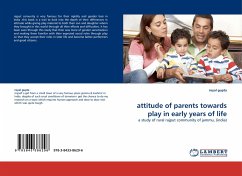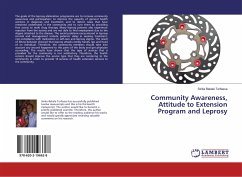
Variables influencing ambivalent sexist attitude towards men
Versandkostenfrei!
Versandfertig in 6-10 Tagen
41,99 €
inkl. MwSt.

PAYBACK Punkte
21 °P sammeln!
This book is an empirical compendium of variables that are likely related to the manifestation of ambivalent sexist attitudes toward men in Nigeria. Women have been researched extensively as victims of abuse and neglect, whereas men have been excluded out as likely targets of benevolent and hostile sexist attitudes. This empirical study has indeed opened up this new dimension of study to evaluate the overall influence of variables such as gender-role beliefs, social dominance orientation, authoritarianism, ethnicity, age, level of education and gender as determinants and co-variates of ambival...
This book is an empirical compendium of variables that are likely related to the manifestation of ambivalent sexist attitudes toward men in Nigeria. Women have been researched extensively as victims of abuse and neglect, whereas men have been excluded out as likely targets of benevolent and hostile sexist attitudes. This empirical study has indeed opened up this new dimension of study to evaluate the overall influence of variables such as gender-role beliefs, social dominance orientation, authoritarianism, ethnicity, age, level of education and gender as determinants and co-variates of ambivalent sexist attitudes. It is a must read for all scholars who are interested in attitude, gender and social relations.












